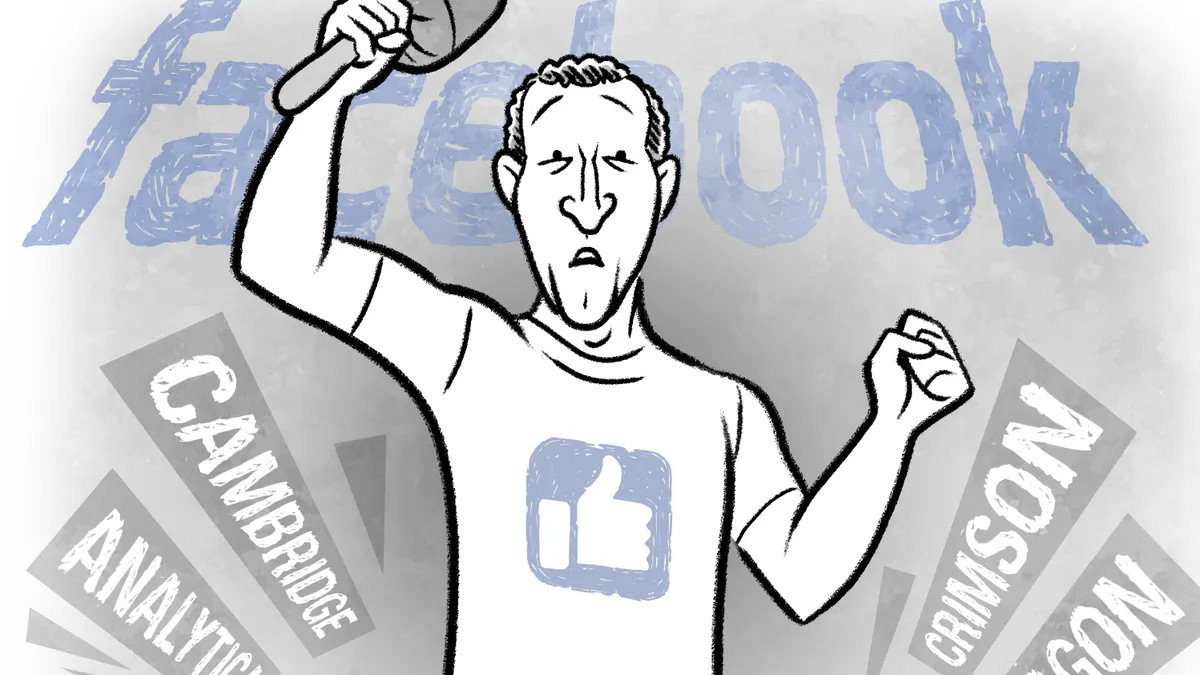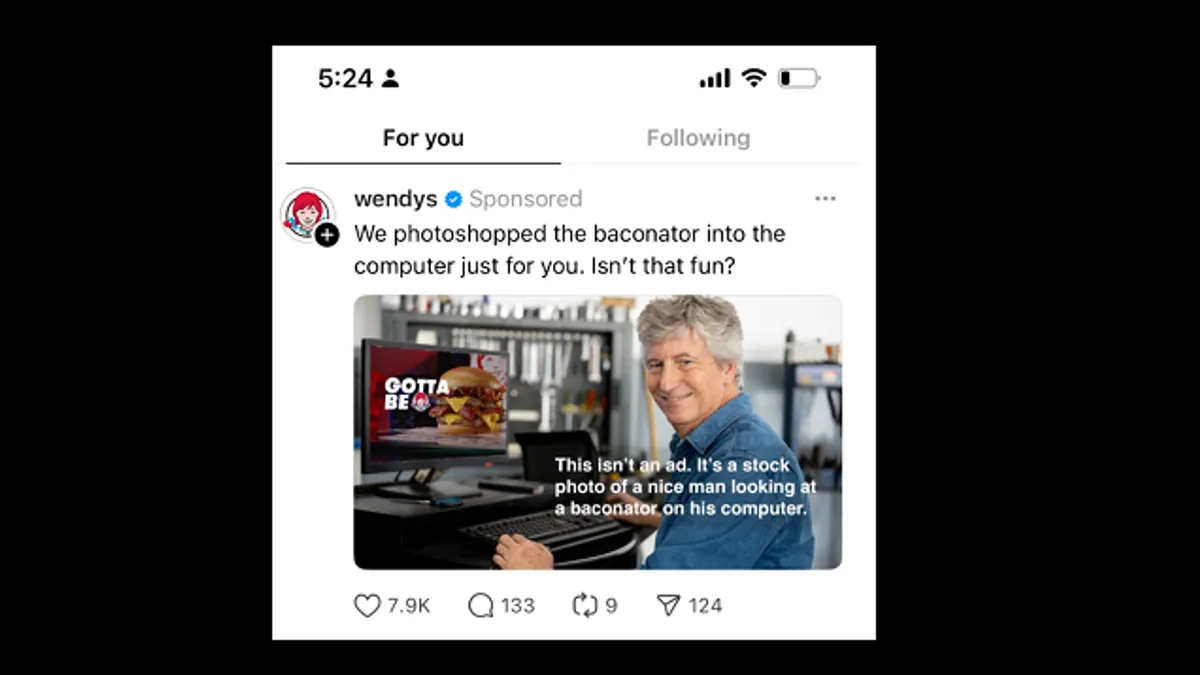In mid-May, Facebook acquired the popular GIF-sharing platform Giphy, raising eyebrows from Madison Avenue to the halls of Congress as the social giant, despite years of mounting criticism toward its outsized influence, snapped up yet another buzzy digital media property. The reportedly $400 million deal came as the coronavirus pandemic continued to roil businesses, leaving many smaller tech players and startups financially vulnerable.
"Facebook's acquisition is yet another example of a giant company using the pandemic to further consolidate power — this time it's a company with a history of privacy violations gaining more control over online communications," a spokesperson for Sen. Elizabeth Warren, D-Massachusetts, said in a statement to The Verge at the time.
Despite growing bipartisan scrutiny toward big tech, marketers shouldn't count out more consolidation as the coronavirus' economic reverberations stretch on. On the vendor side of social media and in the ad-tech sector, a shrinking landscape marked by shutterings and buyouts was apparent before COVID-19. The financial pinch powering these closures and deals has only grown more acute as brands cut back on spending. Giphy, struggling to develop a sturdy revenue, was likely to go out of business if it wasn't acquired, sources told The Verge.
For social media platforms, in particular, the pandemic has also spurred shifts in user behavior that might drive additional investments — including the possibility of acquisitions — as companies try to keep up with trends, analysts said. Further shrinking of the market could be a cause for concern among marketers facing a landscape with less diversity, even as opportunities to experiment with ad products like GIFs materialize.
"From a platform perspective, bigger players are trying to shore themselves up, smaller players are just trying out how to make it through right now," Nicole Greene, senior director and analyst at Gartner, told Marketing Dive in an interview.
Greene noted that many smaller vendors are agile enough to weather the pandemic, but will remain limited in their ability to innovate given barriers in working around walled gardens and their approach to data.
"Especially on the vendor side of social, there have been a lot of recent consolidations, and they continue because the platforms are not really differentiating the data they supply to organizations," Greene said. "From an acquisition and mergers standpoint, the landscape consolidates, in general, around social because there hasn't been that much movement. We haven't seen a lot of innovation in the last few years."
Meeting the moment
A jump in acquisitiveness after the pandemic's penny-pinching early days is already manifesting in industries adjacent to digital media. Analysts expect enterprise technology firms to ramp up M&A to fill gaps in their services and expand into new markets in the months ahead, according to a Wall Street Journal report that points to Microsoft's recent purchase of robotics firm Softomotive as an example. Ad-tech and agency acquisitions could return to growth following a sluggish Q2 as well.
"From an acquisition and mergers standpoint, the landscape consolidates, in general, around social because there hasn't been that much movement."

Nicole Greene
Senior Director Analyst, Gartner
Whether the big digital advertising platforms will go on a shopping spree is less clear, experts said. But on the social media side, companies like Facebook have seen usage spike during the pandemic, as homebound consumers look for ways to stay connected. The uptick in engagement has benefited areas of Facebook's business that previously failed to take off in meaningful ways, such as livestreaming, while revenue is on rockier ground. Group messaging is also notching upward, leading to the creation of new products like Messenger Rooms. Others like Facebook could similarly be looking to fill gaps in their services to seize the moment.
"The biggest change in social as a whole, but certainly within Facebook, has been around the idea of community and being able to bring groups together at a time when you can't be physically together," Jessica Richards, global head of social at Havas Media, told Marketing Dive. "That is an area they are definitely speeding up."
Buying Giphy shows Facebook potentially trying to get a better read on how people are behaving in increasingly popular but typically private channels like messaging, where sharing GIFs is a common mode of expression. The shift toward more insular messaging was one Facebook was already encouraging as it unifies its services on the back end and responds to data privacy concerns following the Cambridge Analytica scandal in 2018. The Giphy acquisition reflects yet another trend that was already gaining steam, but is now accelerating in the mainstream due to the circumstances of the coronavirus.
"If you look back over the last six months, there was already a transition that was happening, especially with a younger demographic, around more of a closed group environment," Richards said. "The pandemic has brought that even further along in terms of people seeking out communities.
"Naturally, I could see Giphy as part of that," Richards added. "It's a way to express yourself more creatively that may potentially have a user want to use their platform versus another in terms of messaging."
Cause for concern
The Giphy deal is also representative of how the pandemic's economic reality has potentially sped up strategic maneuvers, including M&A. Facebook was in talks with Giphy prior to the coronavirus outbreak, but that discussion was mostly around deeper partnership, not acquisition, Axios said in a report that first broke news of the deal.
Though Facebook claims it will keep the Giphy API open to other companies, the social giant is known for aggressively moving against competitors. Giphy is integrated with Facebook rivals like Twitter, TikTok and Slack, and collects users' IP addresses, device IDs and cookie data, according to a privacy policy published in December and detailed by Forrester research.
"Given the number of apps using Giphy's API or software development kit, this doesn't bode well for competitors or privacy-conscious users."

Jessica Liu and Stephanie Liu
Forrester Research
That might worry outside parties, analysts said, even if much of Giphy's data aggregation is anonymized and acquired via proxy. While use cases for Giphy could be limited in the near term in areas like advertising — where the service only has fledgling experiments — Facebook might be able to open a broader view into creative trends and user habits that are forming across platforms. Instagram chief Adam Mosseri has said the deal was not about data, but analysts remain skeptical.
"Facebook could mine this data to learn how users interact with rival apps and make product decisions based on this intel — such as when it launched Instagram Stories, a copycat of Snapchat Stories," Forrester analysts Jessica Liu and Stephanie Liu wrote in a blog post about the Giphy deal.
"Given the number of apps using Giphy's API or software development kit, this doesn't bode well for competitors or privacy-conscious users," they wrote, adding that they expect competitor apps to wind down their relationships with Giphy in the future.
There are other GIF-sharing engines Facebook rivals could turn to, and other platforms may eye in investments along similar lines.
"We are seeing some trends in social, in general: I wouldn't say [they're] fused to acquisitions necessarily, but we're fairly certain larger platforms are going to be looking into [them]," Greene said. "The trend toward micro-communities, of having small groups and being very secure in your conversations, as there are these privacy concerns."
Consider the chilling effect
Alarms being raised over Facebook's Giphy acquisition encapsulate broader wariness toward big tech's growing scale and influence, including for advertising heavyweights like Google and Amazon. However, even with antitrust probes proliferating, the potential for overall M&A to cool due to regulatory pressure is unclear, experts said.
The Wall Street Journal last month reported that the William Barr-led Department of Justice could bring an antitrust lawsuit against Google as early as this summer, with the Alphabet company's advertising technology a point of emphasis in the complaint. Sounding off on the Giphy deal, Sen. Josh Hawley, R-Missouri, compared the acquisition to Google buying DoubleClick for $3.1 billion in 2007, which he positioned as a similar move to hoover up more data on users, according to The Verge.
Surrounding M&A, however, the line from Capitol Hill isn't always unified. Sen. Warren's camp used the Giphy news to promote a "Pandemic Anti-Monopoly Act" the senator is sponsoring that would restrict M&A activity involving large companies during the public health crisis. It's a move Republicans largely oppose, and the final word on the M&A environment will likely boil down to the scale of action taken by the major regulatory agencies.
"There is currently a lot of antitrust action brewing at the DOJ, FTC, as well as with a lot of state attorney generals," Alison Pepper, SVP of government relations at the 4A's, said in emailed comments to Marketing Dive. "Whether or not any of these current investigations will ultimately have a chilling effect on future M&A activity likely depends on how far down the path any of these investigations go, particularly the DOJ and the FTC investigations."
In any case, Giphy might not be the type of buy to land in the crosshairs. For one thing, Giphy is more of a platform add-on, lessening arguments against Facebook diminishing the competitive landscape. Data privacy is another area that might attract less heat because Giphy is less focused on accruing the type of individual user data that's previously landed Facebook and other tech companies in hot water.
"I would say this definitely would give insight into the health of usage on platforms. If that becomes a concern in aggregate, then I think [antitrust] concern makes sense," Greene said. "The stronger concerns over data privacy as individuals are not going to be as relevant in this conversation."
Marketers, long frustrated by the limitations and murkiness of working within the walled gardens, might lose out if M&A does increase as a result of the pandemic. While Giphy is gaining access to Facebook's advertising and sales infrastructure and will be able to scale new ad products and creative tools more quickly, it will be doing so on Facebook's terms.
"For agencies and advertisers, consolidation of competition is always a concern, both in terms of pricing options and diversity of placement offerings," Pepper said.























